Norway-based company’s NMR spectroscopy technology is raising the bar for seafood traceability and transparency standards
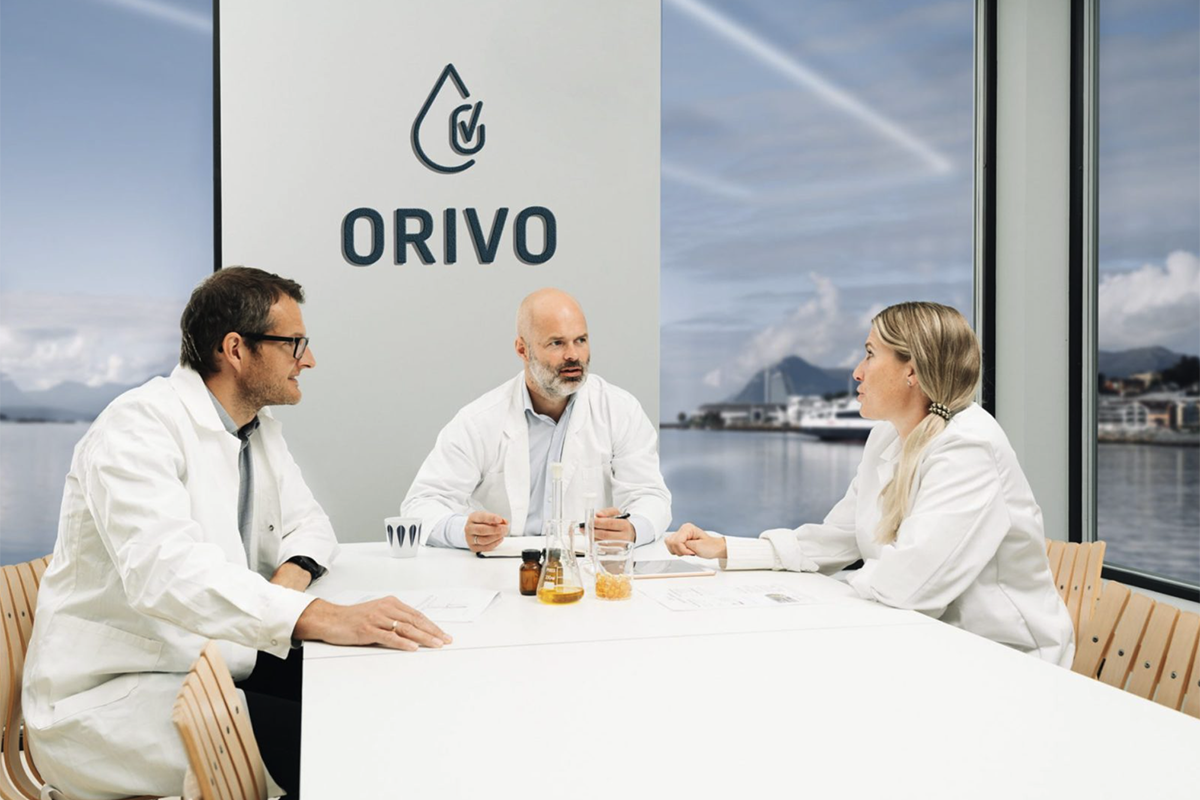
According to traditional MBA textbook wisdom, entrepreneurship usually starts with identifying a problem and then searching for a solution. But for Norwegian chemists Svein Erik Haugmo and Erik Fuglseth, the journey took a different route. While working in a laboratory, the scientists stumbled upon a promising new technology that offered a solution, albeit without a predefined problem.
“The ‘solution’ was laboratory technology that detects origin,” said Haugmo. “We started to dig after problems related to origin, and we found a lot. Consumers want to have a better understanding of the origin of the products they’re buying.”
In 2014, with a “narrow business idea” in mind, the Norway-based duo took their technology and founded ORIVO – a company that offers a unique science-based testing and certification service for the global feed and supplement industry. The company uses novel technology based on proven nuclear magnetic resonance (NMR) spectroscopy, DNA and isotopic-ratio mass spectrometry (IRMS) methodologies that can verify raw-material species and region of origin. Almost a decade since its inception, ORIVO has developed this innovative traceability solution to fit the needs of the aquaculture feed industry.
“It boils down to being able to confirm that whatever the product you’re talking about is whatever it claims to be,” said Fuglseth. “Consumers are caring more and more about that. But also, in business to business: More and more are worried about IUU (illegal, unregulated and unreported) fishing, unwanted species and things like that. It’s confirming that what a company says is true.”
Based on laboratory testing, ORIVO provides verified origin (species and geographic origin), verified production process (organic versus non-organic) and verified specific feed formulations (algae, insect protein, etc.). The analysis technique is powerful in terms of sensitivity, yet able to avoid false positive test results which have been troubling DNA analysis for decades. ORIVO’s technology offers what other existing traceability mechanisms currently do not: irrefutable, scientific verification.
The solution is offered to feed ingredient producers and feed producers through an origin verification program, whereby clients are ensured that the origin of the products they have bought (or are considering buying) is correct. Companies that qualify for the verification program can document evidence-based transparency through a set of marketing tools, developed by ORIVO. A key tool in the business-to-business market is a unique verification seal connected to an online verification document where clients and other stakeholders can log in and confirm the authenticity of a specific ingredient or ingredient mixture.
“Our goal is not to be the police – our goal is to help the honest and responsible companies prove and promote that they are,” said Fuglseth.
To date, ORIVO is the only company in the world providing this type of third-party evidence-based transparency, which is rapidly changing standards of traceability and transparency for the seafood sector. This year, the company was named a fisheries-category finalist for the Global Seafood Alliance’s Responsible Seafood Innovation Award for finding new solutions to the challenges facing seafood.
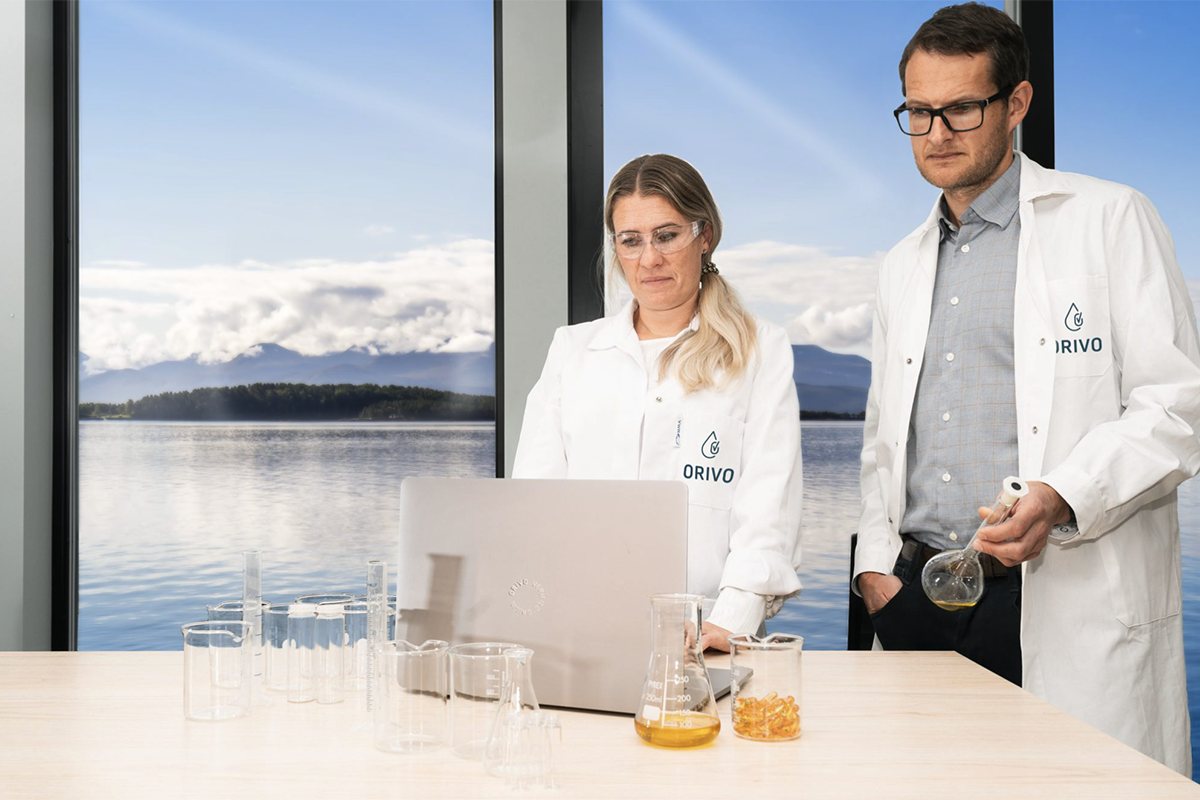
“With marine ingredients, it’s hard to be sure that [feed producers] are getting what they’re buying,” said Haugmo. “All the certifications and paperwork that comes with an ingredient – that’s good, but [it’s not the same as] hardcore evidence made by DNA analysis or one of our other revolutionary origin detection methodologies.”
While the seafood industry uses auditing procedures and cutting-edge technology, tracing the origin of products and ingredients remains a significant hurdle. These mechanisms, although rigorous and advanced, offer only limited guarantees in confirming the authenticity of a product.
“Confirming species has been done for many years, and there are a lot of companies doing that around the world,” said Haugmo. “But we saw that feed ingredients are quite processed, so it’s harder to do this DNA testing. If you add in the complexity of mixing different species, which is the case for feed producers, then this becomes even harder. Our biggest technical innovation is to be able to take two mixtures of sources and to detect and quantify the levels of these sources at the end of the value chain in the fishmeal.”
Certification bodies have limitations too. Aquaculture feed producers procure raw materials globally, typically through complex supply networks. A processor may believe they are buying a particular item, even supported by certificates. However, without evidence-based transparency, there are no guarantees that the product matches expectations. This lack of scientific certainty can be perceived as a risk by fish farmers, consumers and retailers alike.
“An audit is something you do typically once a year,” said Haugmo. “It’s just a snapshot, and there are 364 other days where things can happen. With the challenges the world is facing now – compromised supply chains and supply shortages – people may get creative and try to find ways around certifications.”
ORIVO’s technology can work with and benefit the seafood industry in various ways. Feed producers, for instance, can submit samples for “non-targeted DNA analysis” (meaning that the lab doesn’t necessarily know what they’re looking for), which detects species in certain amounts. The certificate can then be compared to the specifications received from the supplier.
“It’s either a match or a mismatch,” said Haugmo. “It’s used as a supply chain control. That’s been done for many years, but the small revolution is that [ORIVO’s technology] not only checks quality parameters and nutritional facts, but also the species and the origin.”
BioMar, one of the leading global suppliers of feed to the aquaculture industry, is routinely sending samples to ORIVO “to test the integrity of their supply chain.” The company first began working with ORIVO in 2015 as a research partner, recognizing that traditional paper-based documentation may no longer suffice in the evolving landscape. The partnership has since led to the development of a database of species’ information to verify through ORIVO’s DNA testing methodology. As BioMar’s global marketing director Katherine Bryar told the Advocate last year, this could be a game-changer for how the global aquafeed giant does business.
“We can move eventually to a process where [we] could be validating every shipment that comes in,” said Bryar. “BioMar could be at a position where before a shipment is accepted into our processing facility, we are testing it and allowing it to enter or not enter. That would mean that we’re down to not just the one order a year that could be [tested], [but] validation on every shipment that comes through. So then, we are guaranteed.”
Another innovation is the technology’s ability to detect the difference between organic and non-organic salmon. So far, testing has yielded interesting results.
“Two weeks after a major shortage of organic salmon, we went into the retail store and bought random organic-labeled smoked salmon. Almost none of them were organic [according to the test results],” said Fuglseth. “That’s a snapshot image. It could be organic for many periods of the year when there is organic salmon. But what do you do as a producer when there is no raw material available?”
ORIVO has also been successful within the pet supplement sector, which impacts the seafood industry given that a popular raw material has historically been wild Alaska salmon oil.
With the challenges the world is facing now – compromised supply chains and supply shortages – people may get creative and try to find ways around certifications.
“We did a screening of the products offered in the marketplace and found over 80 percent of the products claiming pure wild Alaskan salmon not in compliance,” said Haugmo. “The reason for this is probably due to the increasing popularity of the category, hence a fast-growing demand – and a steady, limited supply. Some big market-leading pet supplement brands have taken the consequence and entered into a verification program with us. Not only for their pure wild Alaskan salmon offerings but also for other pet supplements based on wild Alaskan pollock, ocean-raised Canadian salmon and even blends of the mentioned sources. With the sole purpose of being fully transparent with their clients (the pet parents) about the product sourcing.”
Ultimately, ORIVO’s goal is to spearhead an innovative verification program for the seafood industry. It would involve certifying products with an ORIVO logo on seafood packaging, as well as routinely collecting random samples from retailers to verify ingredients and potentially identify food fraud.
“Mystery shopping is not new, but to apply that as a program as the basis for a product verification – that’s quite revolutionary,” said Haugmo. “The combination of developing the technology to measure new things applied in a new way combined with this vertical-based sampling routine is what separates us from other solutions and makes the consumers more protected.”
Looking to the future, Haugmo and Fuglseth say the company is “getting closer to the consumer” and has even started working with retail chains.
“This is a big game-changer for us,” said Haugmo. “When we started this in 2014, it was based on the vision that people care about where their food is coming from. We are excited now to see that this trend is gaining momentum.”
GSA’s Responsible Seafood Innovation Awards – sponsored by the U.S. Soybean Export Council – for the aquaculture and fisheries categories will be awarded at the Responsible Seafood Summit in Saint John, N.B., Canada, on October 3, 2023. The winner will be decided by an audience poll.
Now that you've reached the end of the article ...
… please consider supporting GSA’s mission to advance responsible seafood practices through education, advocacy and third-party assurances. The Advocate aims to document the evolution of responsible seafood practices and share the expansive knowledge of our vast network of contributors.
By becoming a Global Seafood Alliance member, you’re ensuring that all of the pre-competitive work we do through member benefits, resources and events can continue. Individual membership costs just $50 a year.
Not a GSA member? Join us.
Author
-
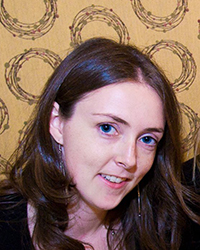
Lisa Jackson
Lisa Jackson is a writer based in Hamilton, Canada, who covers a range of food and environmental issues. Her work has been featured in Al Jazeera News, The Globe & Mail and The Toronto Star.
Tagged With
Related Posts
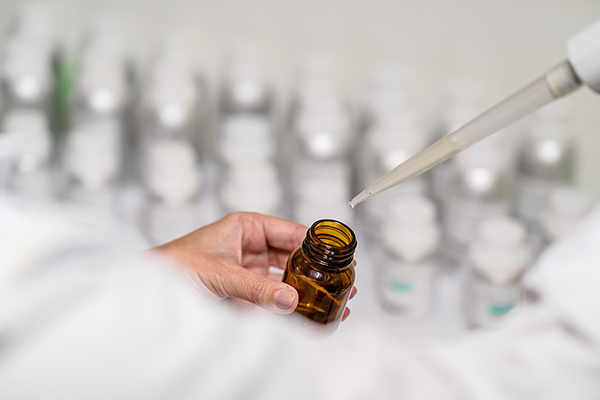
Intelligence
‘Through science, there’s no question’: How evidence-based transparency is changing seafood traceability
ORIVO, a science-based testing and certification service for the global feed and supplement industry, aims to change seafood traceability.
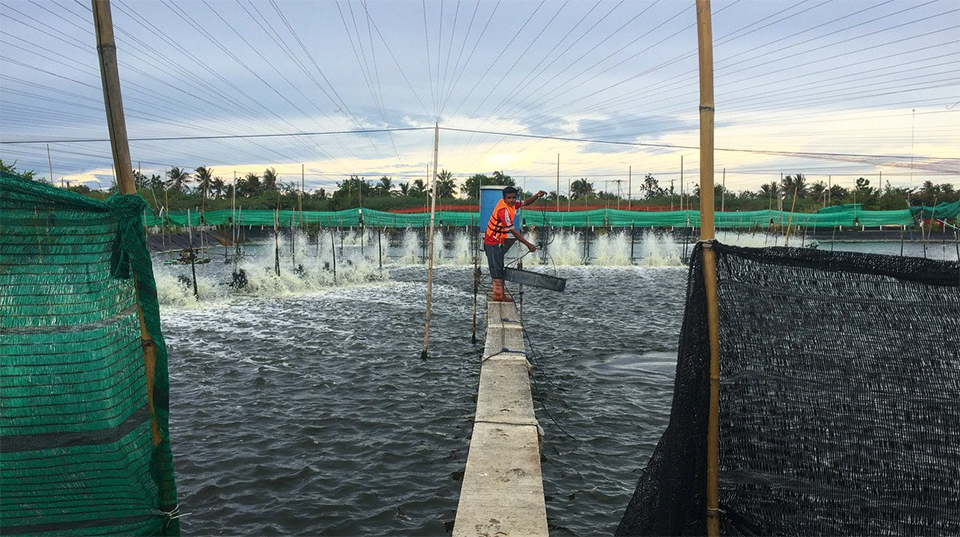
Responsibility
App aims to bring clarity to seafood traceability, social compliance data
For small-scale aquaculture farmers in far-flung regions, creating traceability data can present major challenges, both linguistic and technological. It’s those challenges that VerifiK8 is poised and ready to help solve.
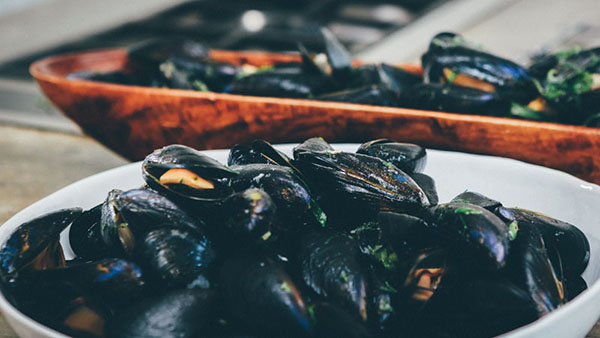
Innovation & Investment
Can a genomic chip in Galician mussels lead to improved seafood traceability?
A new genomic chip guarantees the authenticity of Galician mussels, leading to improved seafood traceability and food fraud prevention.
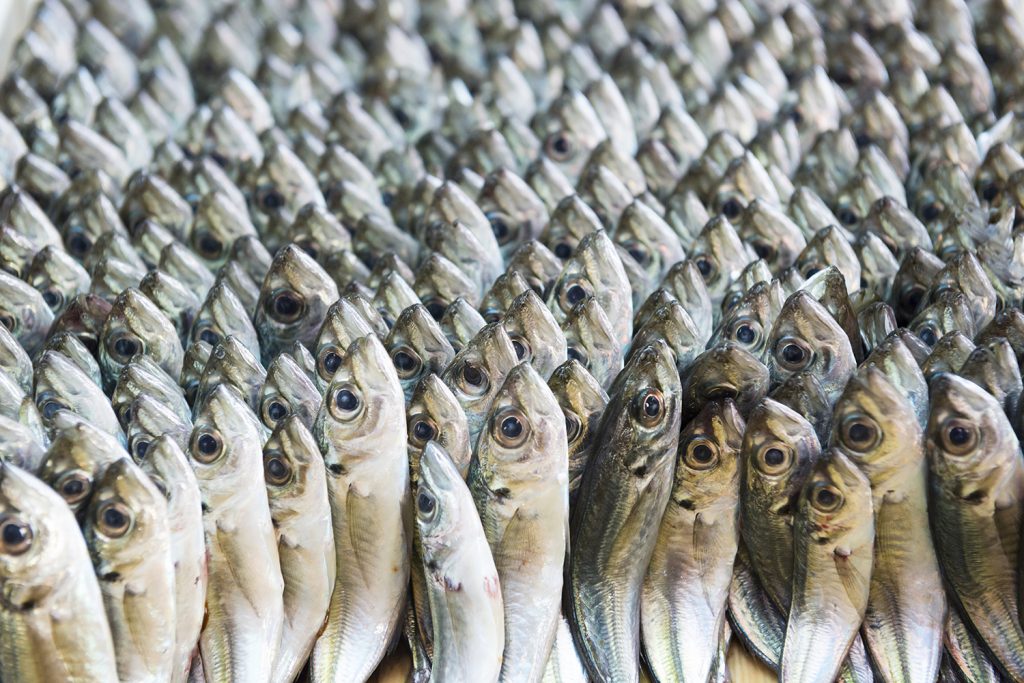
Intelligence
Can handheld DNA testing technology stand up to seafood fraud?
The MasSpec Pen, developed to diagnose tumors, can identify fish species by touching the tip to a sample. But the species database is lacking.


